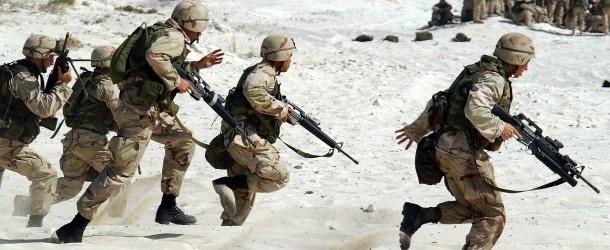Quantum technology for military applications

(EPI.QuantumTechnology.Springer) Michal Krelina, Faculty of Nuclear Sciences and Physical Engineering, Czech Technical University in Prague, has prepared an extensive eight-sectioned report on quantum technologies with a deep explanation of “Quantum warfare”. IQT-News summarizes here noting Krelina’s eplanation, “There is tremendous potential for military applications of quantum technology. Various studies and recommendations are emerging, signalling the increasing likelihood of such technology being realised.”
Quantum technologies are dual-use technologies, and as such are of interest to the defence and security industry and military and governmental actors. This report reviews and maps the possible quantum technology military applications, serving as an entry point for international peace and security assessment, ethics research, military and governmental policy, strategy and decision making. Quantum technologies for military applications introduce new capabilities, improving effectiveness and increasing precision, thus leading to ‘quantum warfare’, wherein new military strategies, doctrines, policies and ethics should be established. This report provides a basic overview of quantum technologies under development, also estimating the expected time scale of delivery or the utilisation impact. Particular military applications of quantum technology are described for various warfare domains (e.g. land, air, space, electronic, cyber and underwater warfare and ISTAR—intelligence, surveillance, target acquisition and reconnaissance), and related issues and challenges are articulated.
Krelina cautions, “It is especially important to avoid exaggerated expectations when the topic concerns national security or defence. This issue has been described in [14].”
This report provides a more in-depth context in which to understand the term ‘quantum warfare’, discussing the possibility of its affecting the intelligence, security and defence sectors, and describing new possible capabilities or improvements. The goal is not to provide a precise forecast of quantum-based technologies, but rather to show possible directions and trends in implementation and applications. Quantum technologies in general are considered emerging technologies, with the potential to change the conduct of warfare and the outcomes of battles [8]. Although the current quantum technologies mostly have low Technology Readiness Levels (TRL), they are believed to have disruptive potential [9]. The mapping of quantum technologies’ conceivable military applications is also important for the further assessment of threats to global peace and in the discussion of ethics policies or quantum-based preventive arms control.
The complete report is available here in PDF.
The sections are below for reference.



















